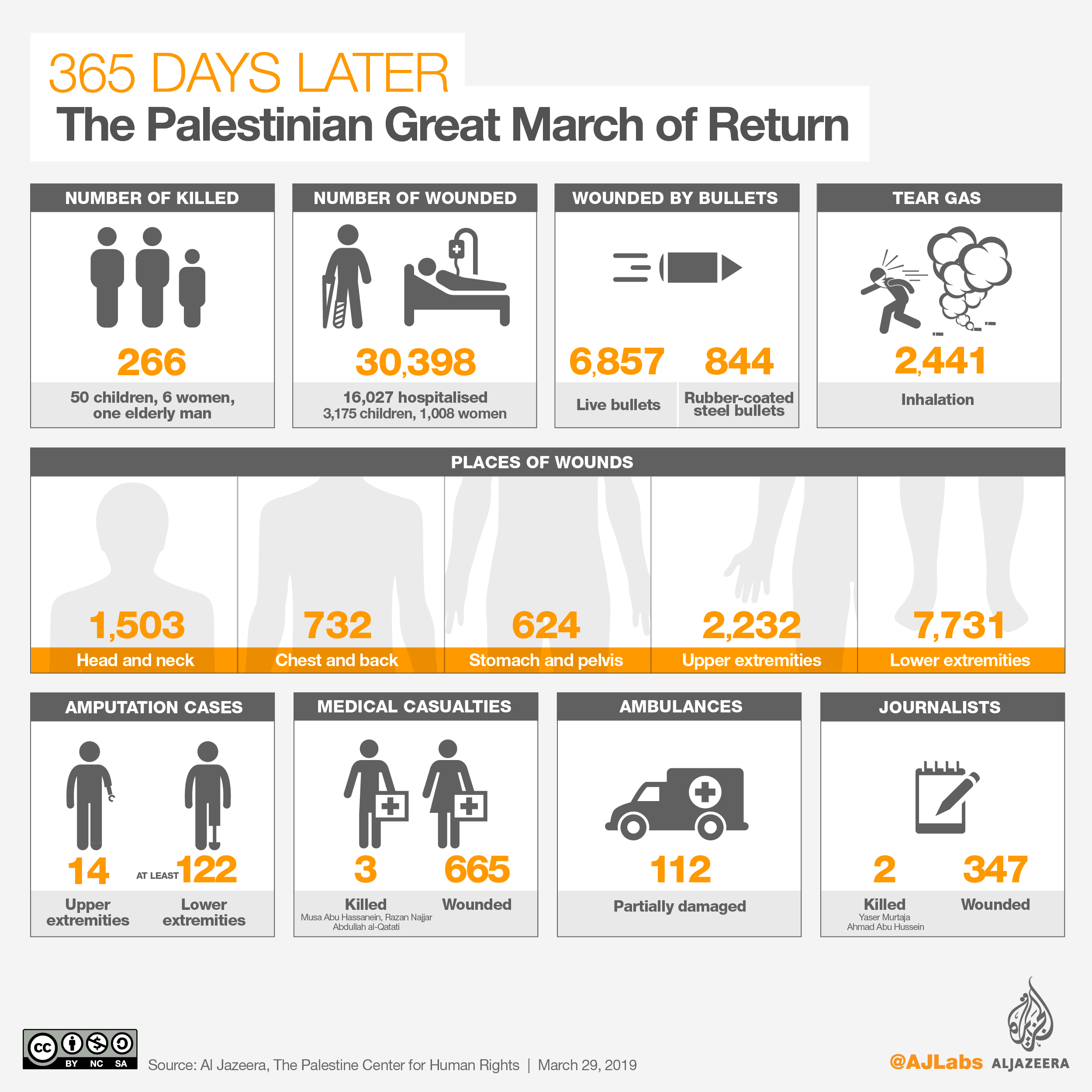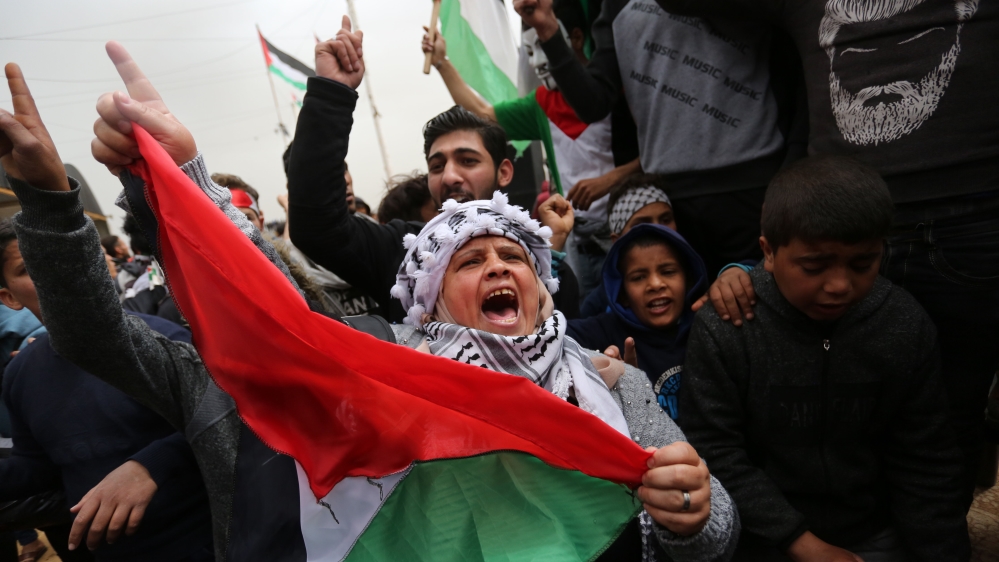Gaza’s Great March of Return: Thousands rally for anniversary
Thousands of Palestinians have gathered at rallying points near the Israeli border fence as part of a mass demonstration to mark the one-year anniversary of weekly protests in the Gaza Strip.
Dozens of volunteers in fluorescent vests prepared to restrain demonstrators from getting too close to the border fence on Saturday morning. Ambulances lined up in front of clinics and Hamas police supervised encampments erected far from the fence.
Some protesters started approaching the barrier, prompting Israeli forces to respond with tear gas.
The Palestinian Red Crescent Society said in a press statement that by 11:30 GMT its medical teams had treated 33 casualties. Of those, four had gunshot wounds, two were wounded by rubber bullets, 12 were hit by tear gas canisters and 15 were suffering from tear gas inhalation, it said.
The Israeli army said the protesters were hurling stones and setting tires on fire. In addition, a number of grenades and explosive devices were hurled at border fence, it said.
The Israeli army said it was “responding with riot dispersal means and are firing in accordance with standard operating procedures”.
The anniversary of the so-called Great March of Return protests came as a newspaper affiliated to Hamas reported late Friday that a deal was reached with Israel to reduce tension in the Gaza Strip.
Gaza’s fence with Israel has for the past year been the scene of mass protests and major bloodshed in which more than 260 Palestinians were killed, mostly by Israeli sniper fire, and nearly 7,000 shot and wounded, according to Gaza’s health ministry.
 |
For months, and through repeated military escalations, Egyptian mediators have been trying to broker a truce.
But on the eve of the anniversary of the Great March of Return protests, the organising committee, which called for a “million man march” on Saturday, issued instructions to the demonstrators, telling them to stay back from Israeli guns, follow commands of organisers on the ground, make no aggressive actions, and to not burn tyres – a sign that an Egyptian-brokered deal may be adhered to.
‘Hamas-Israel agreement’
Al Jazeera’s Harry Fawcett, reporting from the area east of Gaza City near the fence with Israel, said Hamas-affiliated al-Risalah newspaper wrote on Friday night that an agreement between Hamas and Israel had been reached.
“Among the Israeli concessions, according to the al-Risalah newspaper: Increasing Qatari funding from $15m to $40m a month to pay salaries; extending the fishing zone from 9 to 12 nautical miles; increasing the electricity supply from Israel into Gaza; and approving a major desalination project.
“In return, Israel has been seeking an end to rocket fire, such as that which destroyed a family home north of Tel Aviv on Monday, injuring seven and sparking a new round of escalation,” Fawcett reported.
Hamas security officers at the scene of the protest were seen wearing military uniforms for the first time, as they picked up tyres and took them away.
“It looks as if they are here to enforce the deal, to make sure that no one sets these tires alight,” Fawcett said.
Israel, which has sent extra troops and tanks to the border, also wants an end to incendiary balloon launches, and a guarantee of calm at the fence.
Land Day protests
The Great March of Return protests began on March 30 last year after civil society groups in Gaza called for action against the crippling Israeli blockade against the enclave, now in its 12th year.
The first protest fell on Land Day – the annual commemoration of the deaths of six Palestinians in 1976, who protested the confiscation of their land to build Jewish communities.
A UN investigation found that while some protesters over the past year used violence, the vast majority were unarmed and peaceful – stating Israel had no justification for using live ammunition and that the actions of Israeli forces may amount to war crimes.
Prime Minister Benjamin Netanyahu has been trying to balance projecting military strength with seeking de-escalation before the general election on April 9.
“All Israelis should know that if a comprehensive campaign is required, we will enter it strongly and safely, and after we have exhausted all of the other options,” Netanyahu said.
Hamas is also under domestic political pressure. Earlier this month, protesters took to the streets instead of the border over price rises and tax hikes, as Hamas security put the demonstrations down with beatings and arrests.
At the core of those protests were the same feelings of frustration that for a year now have brought thousands to the border, week after week.
 |
|
The Great March of Return protests began on March 30 last year after civil society groups in Gaza called for action against the crippling Israeli blockade against the enclave [Ashraf Amra/Anadolu] |




